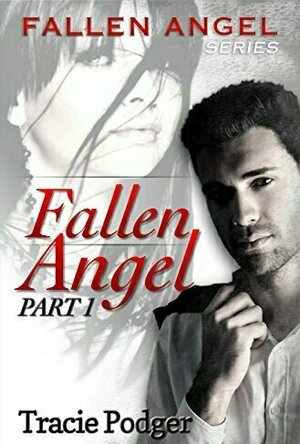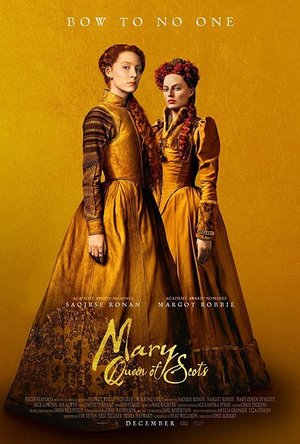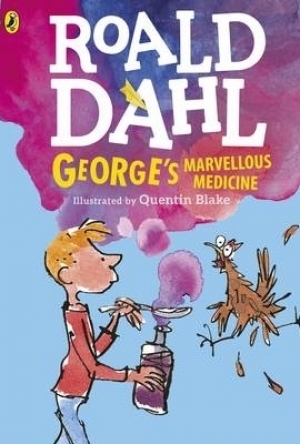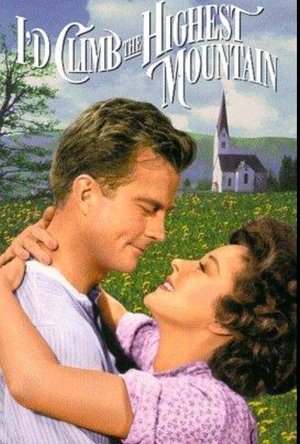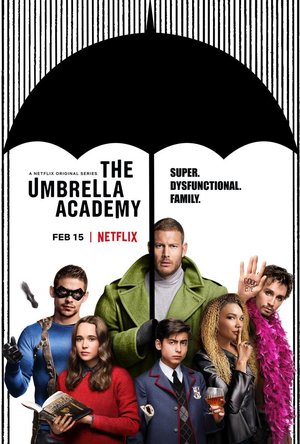Kara Skinner (332 KP) rated Fallen Angel in Books
Sep 10, 2019
Average Goodreads Rating: 4.27
My Rating: 2.5
“What do you see when you look into my eyes?” I asked breathlessly and not entirely sure where the question had come from.
“All there is to know,” was his reply. “What do you see when you look into my eyes, Brooke?” he whispered, there was a slight anger to his voice.
I trembled. “An abyss and danger,” was all I could say.
I found Fallen Angel when I was looking for angel/mortal romance novels. Even though Fallen Angel was listed as a mafia romance and not not the supernatural romance I was looking for, I picked it up anyway. And at first it was great.
It immediately started out with a strong love story. Brooke is in the midst of an existential crisis after breaking up with her long-time boyfriend. When she visits her best friend Sam in New York, she ends up meeting billionaire Robert Stone, a handsome CEO who doesn’t know how to take no for an answer. To the point of being a jerk about it. But at least he’s self aware about that.
“I’m worried that I might hurt you. I have a knack of doing that when people get too close to me, a defense mechanism, I guess.”
No one pretends Robert is a great boyfriend, which I love. There are too many alpha billionaires out there that are disturbingly abusive while everyone pretends it’s a normal relationship. Not here. Robert’s actually one of the first to admit that he’s not a good boyfriend and he’s never had a real relationship. Which is great. I love flawed heroes. And when Robert does get better at communicating his feelings, it’s worth it.
“I love you, Brooke. You’ll never know just how much because there are no words.”
And Brooke is strong enough to handle him. She stands up to Robert when he disses Sam for being gay (which, by the way, I hated a lot. You can be a flawed badass without being a homophobe. Ugh. Major turn-off for me) and when he makes a big deal about her wearing a revealing dress.
“I wore it for you and not for anyone else. If people can see my body, so what? You’re the only one touching it,” I told him.
Brooke’s even a trained kick boxer. She’s incredibly strong and perfect to help Robert get over his past.
Then the story falls flat.
tired-and-bored-boy-sleep-014
After their second fight and make up, the story gets monotonous real fast. A lot of sex scenes– which, to be fair, were actually hot and well-written– and a lot of the mundane stuff. Brooke hanging out with Sam and Scott, Brooke working, Brooke attending one event or another with Robert. The story just dragged. And with the actual story dragging, the amount of comma splices and run-on sentences became more noticeable to me and book was practically unreadable. I had to make myself finish because I had already invested so much time into it.
It’s not like there wasn’t potential for more plot. There’s a jealous ex girlfriend out to steal Robert back and Brooke’s ex boyfriend can’t accept their break up. Brooke takes a troubled teen under her wing and isn’t this supposed to be a mafia romance?
And yet the majority of the middle of the book is sex, clothes, work days, and how great Brooke is for Robert. On top of that, Brooke loses a lot of the strength and independence I saw earlier in the book. In fact, she turned into a love sick teen.
Our souls, so entwined, were part of each other, true soul mates. Not even death would separate us.
marrypoppinsareyouill
To make matters worse, Robert’s criminal background isn’t revealed until three quarters of the way through the story! And since he got out of illegal activities years before he met Brooke, it’s really anticlimactic. Brooke makes a huge deal out of it and almost leaves him because of his past, which makes me dislike her even more. The criminal element actually seems more like an after thought to this so-called mafia romance. I’m really surprised it has such a high rating on Goodreads because I found it pretty disappointing. My rating is 2.5 stars because of the strong beginning, but I definitely won’t be reading any more of the Fallen Angel series.

PersonalityMatch - Personality Test
Lifestyle and Education
App
Discover who you really are! Find yourself. Improve your relationships. Take a free personality...
Haley Mathiot (9 KP) rated Party for Two: Fun, Fancy & Easy Romantic Recipes from the Date Night Chef in Books
Apr 27, 2018
The book is divided into two parts: the first part consists of reasons why you should schedule a regular date night with your spouse, how to do it for a reasonable cost, what to do with the kids, and even how to present and arrange the food. Part two has recipes ranging from sauces and dressings, appetizers, entrees, and more.
The recipes are easy and affordable, and Cadle gives tips and advice on how to find them for an even lower price than normal, how to plan the food ahead of time to save money, and how to use purposeful leftovers in meals for the next few days. These recipes could be used for nice dinner parties, potlucks, or dinner guests as well.
My only complaint about the book is that there are no photographs of the recipes in the book. The recipes sound very complicated (Grilled Brie, Conch Fritters, Gorgonzola Bruschetta) even though after reading them I can tell that they're not, but I'd still like to see what it looked like. On a very minor note, there was some weird formatting and type face stuff going on, but I'm not sure if the untrained eye would notice it or not. It took me a few times looking at it to notice.
Emma @ The Movies (1786 KP) rated Mary Queen of Scots (2018) in Movies
Sep 25, 2019
Scrolling back through Saoirse Ronan's acting career I've only actually seen her in two things, Lady Bird and City Of Embers (which for the life of me I cannot remember her in), and I can't say that I was going in as a fan, but I came out pleasantly surprised by her powerful portrayal of Mary.
The cast in this is brilliant, so many recognisable faces. Ian Hart, Gemma Chan, David Tennant (not initially so recognisable until he starts to speak), Brendan Coyle and Joe Alwyn who is clearly hedging his bets by appearing in The Favourite as well.
Margot Robbie is wonderful, just generally, and I love so many of her roles. I do feel like she was rather underused as Elizabeth, but thankfully her brief appearances were quite striking.
I was so happy to see Adrian Lester's name connected to this. I'm slightly obsessed with Hustle, and his stage and screen work is usually something tremendously entertaining to watch. However, I didn't feel that the script allowed him to get anything good out of Lord Randolph sadly. Guy Pearce fared much better and gave an impressive performance.
Visually the locations and costumes make for a magnificent film, but while I wasn't bored at any point it does feel like it could have lost a few minutes here and there.
What you should do
It's worth giving a watch at some point but I don't think there's any rush to get to the cinema for it.
Movie thing you wish you could take home
Some quality Mary ginger hair... maybe without the halo of volume.
Destiny (8 KP) rated George's Marvellous Medicine in Books
Jan 5, 2018
How it’s written: From George’s perspective, you get to see how awful his grandmother is and his hilarious remedy for it. Then read as the madness continues when it’s time to give grandma more medicine.
What I like about this book: For me, it was one of the funniest things I had read up to that point. My own grandma would say rude things to me and my sisters, which I guess is why I was drawn to this book. A combination of the hilarious writing and the wonderful plot had me absorbed by this book when I was young.
Final Thoughts: There is always something so ridiculous and curious about Roald Dahl’s work. He really knew how to make reading fun.
If you'd like to read more of my reviews, check out ificouldgo.com
Dianne Robbins (1738 KP) rated I'd Climb the Highest Mountain (1951) in Movies
Apr 26, 2019
Though the characters are religious, they are not all fire and brimstone about their faith. Instead, the characters are simple, gentle, kind, and moral. The preacher's attitude reminds me of Gregory Peck as Atticus Finch from To Kill a Mockingbird.
Susan Hayward plays the preacher's wife in a very believable way as the character journeys from a new wife to a more well-rounded person. Her character grows through hardship and shows real grit and backbone.
If you like classic movies and long for simpler times, this is a good one to watch.
Sheridan (209 KP) rated The Umbrella Academy in TV
Apr 27, 2019
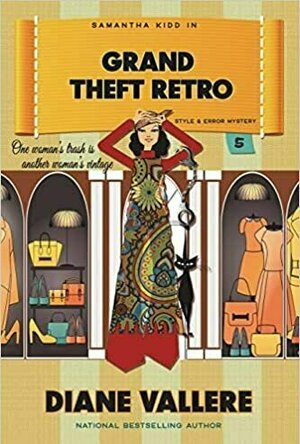
Grand Theft Retro
Book
Nothing says new beginning like a birthday. But sometimes beginning involve confronting the past. ...

Nike Training Club
Health & Fitness and Lifestyle
App
Welcome to Nike Training Club, your Ultimate Personal Trainer. Get fit with 160+ free workouts in...

Rich Girl Fashion Mall
Games and Entertainment
App
~~> Are you ready for the good life?! Find out what it’s like to be made of money! ~~> Have a...
